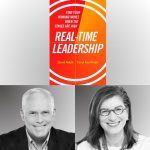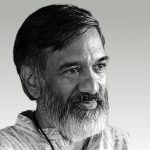Podcast Themes
Multiple perspectives on a topic that you are curious about!
Roopa Kudva speaks about how leaders need to balance their gut and the data that is available to them and know when to make a decision and when not to.
Related:
Making/Not making key decisions
Making/Not making key decisions
Roopa Kudva speaks about how she made decisions given she had a high caliber team at Omidyar Network India. She also highlights the criticality of breaking down the “why” behind a decision so that the team members feel “heard”.
Related:
Enabling good decisions
Enabling good decisions
Roopa lays out 4 approaches to purpose. 1) Seek alignment between your personal purpose and organizational purpose 2) Learn from role models 3) Find purpose in the day to day 4) Use privilege as a platform to find purpose
Neeraj Aggarwal speaks about how, given the emergence of AI, the integrative skill of leadership will become even more important. He also speaks about how we need to discern when to leverage AI to our benefit. He warns us that abdicating completely to AI may not be a good idea!

Alan speaks about how Bill would go about engaging with leaders and ensuring that they made good decisions. There is a piece here around following the right process for making a good decision. He also speaks about his role in helping leaders move on once a decision is made (whether it is in your favour or not).

Carol and David speak about how we can adopt multiple approaches to a situation. They borrow from the notion of fight, flight, fright or befriend and talk about the different approaches leaders could take to a situation – Lean in, Lean back, Don’t lean at all and Lean with.

Carol and David speak about Validating the vantage point that a leader has. They speak about the various elements of a vantage point – resolution, level of detail , biases, near term vs long term and more.

Jeffrey speaks about how nuclear energy can be a boon if used to generate electricity but could be a bane if it is used to make a bomb that kills people. Jeffrey goes on to say that context determines if something is good or bad and says that Power works in a similar fashion.

Jeffrey speaks about how being judgmental comes in the way of learning and can drive people away from us. He speaks about how Steve Jobs, Donald Trump and Elon Musk wielded power but as a result had a lot of attrition around them. He also speaks about how we may not have the right to tell somebody else what they ought to do but we possibly have a right or an obligation to tell others how they can get better at doing something.

Ethan speaks about how we could be effective in helping people deal with Chatter. He suggests that while we need to play a role of empathizing and listening to allow the person to vent, we also need to consider providing some coaching or widening of their perspective so that they could move forward. He speaks about the few people that he calls Chatter Advisors that he turns to where he gets a healthy balance of listening and Sounding Board support when he experiences Chatter. He speaks about some of the characteristics that leads them to be on his Speed Dial.

Manjari speaks about some of the situations at work where she had to balance the multiple egos and agendas and find an approach that’s tactful. She also goes on to talk about her black and white approach to situations and how she cuts through the clutter.

Raghu speaks about the notion of resolving Dharmasankatas – the double bind situations where there are no easy answers. He speaks about how Indian leadership (going back to King Vikramaditya) has had an emphasis of resolving Dharmasankatas. He goes on to speak about the Leadership traits that help in resolving these tricky situations.